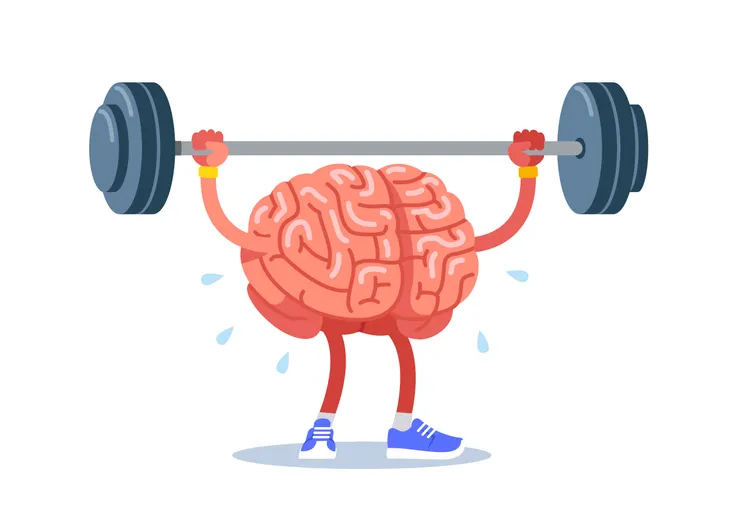All too often the desire to “get healthy” is overridden by the need for sleep, food, TV, and drinks out with friends. The good news in health research is it doesn’t take much to make big improvements in physical and mental health. Most people believe that if they don’t have the time to dedicate to exercise and eating well, all is lost. Not so!
The following are a few suggestions to help increase energy, balance, and clarity (without having to step foot in a gym or lift a carrot)…
Get a Good Night Sleep
Sleep researchers are suggesting that, to get the health benefits from sleep, one must clock approximately seven to 10-hours of uninterrupted sleep per night. Unfortunately, for many, this means no getting up in the middle of the night to pee or make a sandwich this means attaining the deep sleep necessary to grow and repair cells and maintain good physical and mental health. The World Health Organization has suggested that sleep deprivation is a global issue and one that needs to be address to help prevent illnesses down the road. So how does one achieve a good night’s sleep?
One of the most influential factors to getting a good sleep is turning off the screen at least 45-minutes prior to bedtime. Screen time stimulates the brain while the glow from electronics delay the release of melatonin (a sleep inducing hormone). Another suggestion, that may have a positive influence, is taking a hot shower or bath before bedtime. It’s a fact that the rapid decrease in body temperature can induce sleep more effectively. There are many tips sleep experts offer the sleep deprived including keeping the bedroom dark and cool, ensuring the pillows and mattress offer the right support, and cease drinking caffeinated beverages by mid-day. If these suggests offer no resolution, there are health care providers available to tailor a sleep hygiene program to suit your needs.
Enjoy a Belly Laugh
Laughter is not only enjoyable, but according to the research, it really is the best medicine. A good belly laugh can increase the oxygen in the blood, decrease blood pressure, heart rate, and stress response. Laughter researcher, William Fry, suggested that the heart rate response of one hearty laugh is equal to the heart rate response after ten minutes on a rowing machine.
Laughter is a form of exercise and burns calories. A study out of Vanderbilt University found that 10- to 15-minutes of laughter burned 50-calories. Laughing can connect people and increase a sense of social cohesion. It can shift perspectives from negative to positive and increase mental resilience. In a nutshell, laughter is an important part of any mental and physical fitness program.
Grab a Friend
One of the most important factors to increased health and quality of life is the human need for social connection. Research has shown that isolation decreases immune system function that can lead to chronic diseases such as coronary heart disease. Moreover, social isolation can induce or maintain a level of depression that will affect the entire body. Dr. Cacioppo, a Psychologist from the University of Chicago, discovered that feelings of loneliness can increase one’s risk of an early death by 14-percent. Moreover, loneliness can contribute to sleep deprivation, an increase in blood pressure, and the production of stress hormones.
Working towards establishing connections with others can be challenging, but doing so will enhance overall health and well-being. Having an intimate connection to just one person is enough to reap the benefits. In addition, feeling a part of a community or enjoying the social connectedness of saying hello to another person on the street can offer the same benefits to physical and mental health as would a run around the block.
Get Mentally Fit
Mental Fitness can be defined as having the resources necessary to cope with the average daily stressors. To be mentally fit, one functions well with the daily hassles of life and is able to contribute to community and family in a positive way. A high level of mental fitness reduces stress, strengthens the immune system and increases the overall quality (and perhaps quantity) of life.
How does one strengthen mental fitness? Lifestyle factors can play a role including sleep, healthy nutrition, and daily physical activity. Understanding and collecting a tool box of resources also plays a role in strengthening mental fitness. Personal resources may include friends and family, walks in nature, meditation, and simple acts of deep breathing. Community based resources could include a medical professional, clinical counsellor, or support group.
Go Natural
Referred to as “eco-therapy”, research is suggesting a simple walk in nature has significant effects on mental and physical health. A study out of the University of Essex examined two groups of walkers; nature walkers and shopping mall walkers. The results showed a significant decrease in depression in the nature walkers by 71-percent while the mall walkers demonstrated a 45-percent decrease. In addition, the walking group from the mall reported an increase in depression by 22 percent.
Research has suggested it takes only 20-minutes of outdoor activity to increase energy levels, mental well-being, and strengthen physical resiliency to help reduce illnesses. Conversely, it has been reported that people who live in concrete environments without the exposure or opportunities to connect with nature can experience “nature deficit disorder” a term coined by author Richard Louv. It is important for good health to scope out opportunities to enjoy what nature has to offer…even if it is a walk in a city park or sitting under a tree. A little eco-therapy can go a long way.
Shift the Attitude
It’s not uncommon to focus more on the negative thoughts than the positive ones. It’s rare to get up in the morning celebrating the image in the mirror. We tend to ruminate on the wrinkles, the dead-end job, the thoughtless spouse, and all the bad choices we made in life, enough to send the most positive person down a nasty shame spiral. A shift in attitude can go a long way in changing perception, emotions, and even the course of the day.
Positive psychologists suggest it doesn’t take much to make a difference. By listing two or three things we are grateful for we can shift our perspective to a more positive one. Practicing mindfulness is another beneficial shift one can make to enhance overall health. Being mindful moves thoughts from worrying about the past or what is going to happen in the future to thinking about the present moment while accepting it without judgement. Practicing mindfulness can reduce stress, reduce blood pressure, reduce chronic pain and enhance sleep.
Eat Real Food
Although this tip isn’t as simple as it sounds, eating food that is whole (a.k.a. real) has a positive effect on both physical and mental health. The body of research examining a possible link between nutrition and mental health is growing. Dr. Stephen Ilardi, author of The Depression Cure, suggests a strong relationship between mental illness and sugar consumption. Sugar consumption in North America has risen due to desire for fast and processed food. According to Dr. Ilardi, sugar triggers inflammation in the body which can lead to chronic diseases such as cancers, heart disease, arthritis, and diabetes. Moreover, inflammation can influence mental health and depression.
Moving to whole foods isn’t as daunting a task as it may sound. Beginning with small steps such as adding a few more vegetables to the plate is a great start. Being mindful of the ingredients of food items will also create more of an awareness of how much sugar is in one’s diet. Cooking more and eating out less will also have a significant effect on healthier eating. Although this step to health may not be one that comes overnight, it will come if the steps are small.
Get Out and Walk
This message has been repeated over and over again, but still remains one of the most important to improved health. Adding more physical activity to one’s day helps reduce the risk of chronic disease and obesity-related illness and improves overall physical and mental health. Better yet, only 30-minutes a day can make a big difference…but wait…there’s more!
Not only can one reap the mental and physical benefits of daily physical activity but the activity is accumulative. No need to dedicate 30-minutes to exercise, adding up the minutes of physical activity is all that is necessary. For example, 10-minutes in the morning walking the dog plus 10-minutes at lunch, plus 10-minutes after work amounts to a healthy dose of physical activity. This could include parking further away from the grocery store or taking the stairs instead of the elevator. Gardening, cleaning the house, or taking walking breaks at work are all forms of physical activity that will lead to the greatest benefits. Remember, there is no need to squeeze into the spandex and suffer through 45-minutes on the “Stairmonster”. Physical activities opportunities are everywhere!
Limit the Time Spent on Social Media
Facebook, Twitter, and other forms of sharing on social media has changed the way we connect and relate to each other. The average American between the ages of 18 and 64 report 3.2-hours a day on social media sites according to a report from Ipsos Open Thinking Exchange. A study from University of Michigan found that those participants that used Facebook also reported feelings of misery and negative effects on their wellbeing. Dr. Gwenn O’Keeffe, a Boston-based paediatrician has coined the term “Facebook Depression” and suggests that Facebook use can have a negative influence on those that have a higher risk for depression. The link to depression and Facebook use has become such a concern, many psychologists are referring to it as Facebook Addiction Disorder.
Suggestions to reducing time spent on social networking sites may be as simple as allocating specific times for usage. It could include keeping all electronics in one place (and not in a pocket at all times) so usage is not as instant or habitual. If it becomes more of a challenge to reduce use or feelings of anxiety come up when attempts are made, these may be signals that addiction may be present. If this is the case, the need for outside support may be necessary to kick the habit.
Give Back
If we can trust the research there is no such thing as altruistic giving. Research has demonstrated that the act of giving through volunteerism or financial donations can improve self-esteem, release endorphins, strengthen the immune system, and improve overall well-being. In addition, lending a hand can shift one’s perspective from a focus on life troubles to a focus on helping someone in need. As a result, the act of giving can decrease depression.
The good news is it doesn’t take much to reap the positive health benefits of giving. From opening the door for a stranger to assisting someone with a heavy load of groceries, the act of giving takes virtually no time and no money. What’s more, studies have demonstrated that acts of kindness influence others to do the same. Moreover, it isn’t just the giver and receiver who benefit from feelings of well-being, but those that witness kindness also report feeling a greater sense of wellness. Just think, from the simple act of holding a door or saying hello to a stranger on the street, we can be taking another step towards health and a greater level of well-being.













